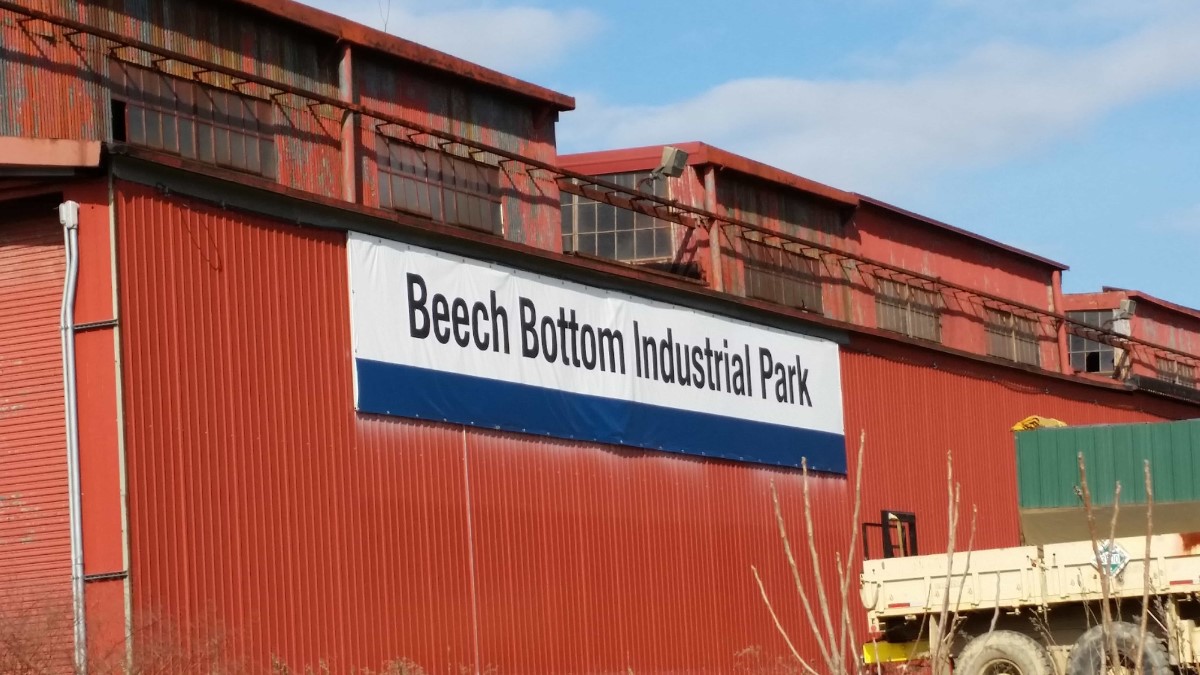Is the Northern Panhandle experiencing an economic rebirth? More than one panhandle resident thinks so, and is working toward the goal of seeing every…
Is the Northern Panhandle experiencing an economic rebirth? More than one panhandle resident thinks so, and is working toward the goal of seeing every abandoned factory that lines the Ohio River Valley repurposed.
53-year-old Patrick Ford has vivid memories of growing up in rural Buhler, Kansas. He remembers family farms becoming obsolete with the rise of corporate farms. It was an economic shift that happened fast. He remembers as a kid, for fun, walking through abandoned homes.
“TV would still be there, photo albums,” Ford said, “there was one [abandoned home] where the spectacles of this old man were still on the table.”
Ford says the scenes of abandoned life are burned into his memory. It shocked him that no one planned for the economic shift, that there was no transition for these families. That’s part of what motivates his work today.
The Private Nonprofit Model for Driving Economic Development
For the past seven years, Ford has been the Executive Director of the Business Development Corporation of the Northern Panhandle. The mission of the private nonprofit is to foster a diverse economy in Brooke and Hancock counties.
Ford sat in his office building in Weirton in front of a white board that lists some 30 priority projects his organization is focused on ranging from helping a small bakery open its doors to repurposing the former pottery plant Taylor Smith & Taylor. Ford says it’s his goal to see new businesses taking over the the abandoned mills that line the Ohio River Valley. And he says he’s not alone.
“I wake up knowing that there’s someone in the city of Charleston, the West Virginia Economic Development Authority, the West Virginia Development Office, the Governor’s Office, the Secretary of Commerce, the Benedum Foundation, the Northern West Virginia Brownfields Assistance Program, the Hancock County Commission, the Brooke County Commission, the mayors — I know that everybody is waking up with [economic redevelopment] on their minds right now,” Ford said.
“I don’t know if that’s like that for the entire state, but it’s happening right here and that gives this whole community hope.”
The Goal: Big Business
Ford ultimately wants to attract big business; he wants to revitalize the industrial age in the Ohio Valley.
Ford remembers five years ago when his organization landed a quarter-million dollar grant from the U.S. Economic Development Administration to prepare an economic adjustment strategy. After considering the assets of the region, like location, workforce, and existing infrastructure, consultants indicated that the valley was ripe for five business clusters:
- chemical
- energy
- metal
- transportation
- healthcare
“When we got that message five years ago we thought, yeah great, alright. Here’s the $200 thousand, and thank you for the recommendation,” Ford said with a note of cynicism. But he said, it was an expensive recommendation that they couldn’t afford to ignore.
No sooner had they received these recommendations than the shale gas boom started. Ford said it was a lucky break that played right into the region’s hands. And he isn’t dissuaded by the lull in that sector we’ve witnessed over the last year. He says the revitalization is happening and will continue to happen regardless because there is a more diversified approach to economic redevelopment.
Brownfields
But the challenge his organization and others like it face now is securing the flat land that lines the Ohio River Valley. Ford says mostly, we’re talking about abandoned, contaminated mills – brownfields. It’s challenging and expensive to acquire and clean sites, but that is exactly what the Business Development Corporation is focused on.
“You look at the numbers and we’ve got 40 million dollars a year in investments coming in in the last four years, and we’re the two smallest counties in West Virginia? That tells me one thing, we might be small but we’re fighters. And we’re going to make a difference. And we have, as a community.”
Ford and the Business Development Corporation of the Northern Panhandle is working with community groups, local banks, the U.S. Environmental Protection Agency and a few other organizations to secure the grants and loans necessary to tackle the blight and work toward economic rebirth.
